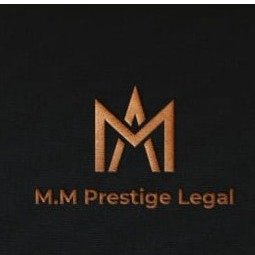Best Government Relations & Lobbying Lawyers in Pretoria
Share your needs with us, get contacted by law firms.
Free. Takes 2 min.
List of the best lawyers in Pretoria, South Africa
South Africa Government Relations & Lobbying Legal Articles
Browse our 1 legal article about Government Relations & Lobbying in South Africa written by expert lawyers.
- B-BBEE Compliance Guide for Small Businesses in South Africa
- B-BBEE compliance is measured on a scale of Level 1 to Level 8, where Level 1 provides the highest competitive advantage for securing government tenders and private sector contracts. Small businesses with an annual turnover under R10 million are classified as Exempted Micro Enterprises (EMEs) and automatically qualify for Level... Read more →
About Government Relations & Lobbying Law in Pretoria, South Africa
Government relations and lobbying law in Pretoria play a pivotal role in shaping the interactions between governmental bodies and the private sector. These laws encompass the activities organizations undertake to influence public policy, regulatory decisions, and legislative measures through lawful means. In Pretoria, as in the rest of South Africa, lobbying is a legitimate and regulated profession aimed at ensuring that all stakeholders in society have the opportunity to be heard. Lobbyists work to provide information and perspectives to government officials and policymakers, aiming to improve policy outcomes and promote the interests of their clients.
Why You May Need a Lawyer
There are several scenarios where you might need legal assistance in government relations and lobbying:
- Complex Regulatory Compliance: Navigating the intricate landscape of South African lobbying laws can be daunting. A lawyer can help ensure that you or your organization remain compliant.
- Drafting Proposals or Legislation: Attorneys can assist in crafting persuasive proposals or drafting legislative amendments that align with legal requirements.
- Advocacy and Representation: Hiring a lawyer can ensure effective communication and representation in meetings with government officials.
- Resolving Disputes: In case of disputes or accusations related to lobbying activities, legal representation is vital for defense or resolution.
Local Laws Overview
Pretoria falls under South Africa’s broader legislative framework concerning lobbying and government relations. Key aspects include:
- Lobbyists must often register with the government to conduct activities legally, depending on their role and the nature of their work.
- Regular disclosures regarding lobbying activities are required to enhance transparency and accountability.
- The Prevention and Combating of Corrupt Activities Act governs many facets of lobbying to prevent corruption and undue influence.
- Ethical conduct is enforced through various regulatory measures to ensure that lobbying practices do not contravene public interest or legal standards.
Frequently Asked Questions
What is considered lobbying in South Africa?
Lobbying involves activities designed to influence government decision-making or policy-making, typically undertaken by individuals or organizations on behalf of clients.
Do I need to register as a lobbyist in Pretoria?
Depending on the nature of your activities, you may need to register with relevant governmental authorities to legally conduct lobbying activities.
What laws govern lobbying practices in Pretoria?
The primary legislation includes the Prevention and Combating of Corrupt Activities Act, among other regulations addressing transparency and ethical practices.
Can non-profits engage in lobbying?
Yes, non-profits can engage in lobbying but must comply with the same rules and regulations as for-profit entities.
How can I ensure my lobbying efforts are ethical?
Staying informed about legal requirements, ensuring transparency, and maintaining honest communication with stakeholders will help ensure ethical practices.
Are there restrictions on the types of individuals or organizations who can lobby?
While most organizations can engage in lobbying, there are standards and restrictions related to foreign entities and individuals to prevent undue foreign influence.
What are the penalties for violating lobbying laws?
Penalties can include fines, imprisonment, or disqualification from future lobbying activities, depending on the severity of the violation.
How can I build effective government relations?
Building effective relations requires understanding the political landscape, being transparent, and having respectful and open dialogue with policymakers.
Can public employees engage in lobbying?
Public employees may face restrictions on lobbying activities to prevent conflicts of interest and ensure the integrity of public decision-making.
Where can I find registered lobbyists?
Lists of registered lobbyists are typically maintained by governmental bodies and may be accessible through specific agencies overseeing lobbying activities.
Additional Resources
Several resources can assist those involved in government relations and lobbying:
- Department of Public Service and Administration: Provides guidance and policies related to ethical government interactions.
- The South African Institute of International Affairs (SAIIA): Offers insights and events discussing policy advocacy and governance.
- South African Revenue Service (SARS): Important for understanding the tax implications and requirements for lobbying organizations.
- Legal Practices Council: Regulators of legal practice in South Africa can provide guidance on ethical lobbying as practiced by lawyers.
Next Steps
If you require legal assistance in the field of government relations and lobbying, consider taking the following steps:
- Research and Identify: Conduct research to find legal experts specializing in government relations and lobbying within Pretoria.
- Consult with a Legal Expert: Schedule consultations with potential legal advisors to discuss your needs and assess their expertise.
- Verify Credentials: Ensure that the legal professionals you consider are duly licensed and have experience in lobbying law.
- Discuss Fees and Services: Clarify and negotiate the fees associated with legal services to ensure transparency upfront.
- Engage with a Lawyer: Once satisfied, engage formally with the lawyer or law firm that best meets your requirements.
Lawzana helps you find the best lawyers and law firms in Pretoria through a curated and pre-screened list of qualified legal professionals. Our platform offers rankings and detailed profiles of attorneys and law firms, allowing you to compare based on practice areas, including Government Relations & Lobbying, experience, and client feedback.
Each profile includes a description of the firm's areas of practice, client reviews, team members and partners, year of establishment, spoken languages, office locations, contact information, social media presence, and any published articles or resources. Most firms on our platform speak English and are experienced in both local and international legal matters.
Get a quote from top-rated law firms in Pretoria, South Africa — quickly, securely, and without unnecessary hassle.
Disclaimer:
The information provided on this page is for general informational purposes only and does not constitute legal advice. While we strive to ensure the accuracy and relevance of the content, legal information may change over time, and interpretations of the law can vary. You should always consult with a qualified legal professional for advice specific to your situation.
We disclaim all liability for actions taken or not taken based on the content of this page. If you believe any information is incorrect or outdated, please contact us, and we will review and update it where appropriate.

















